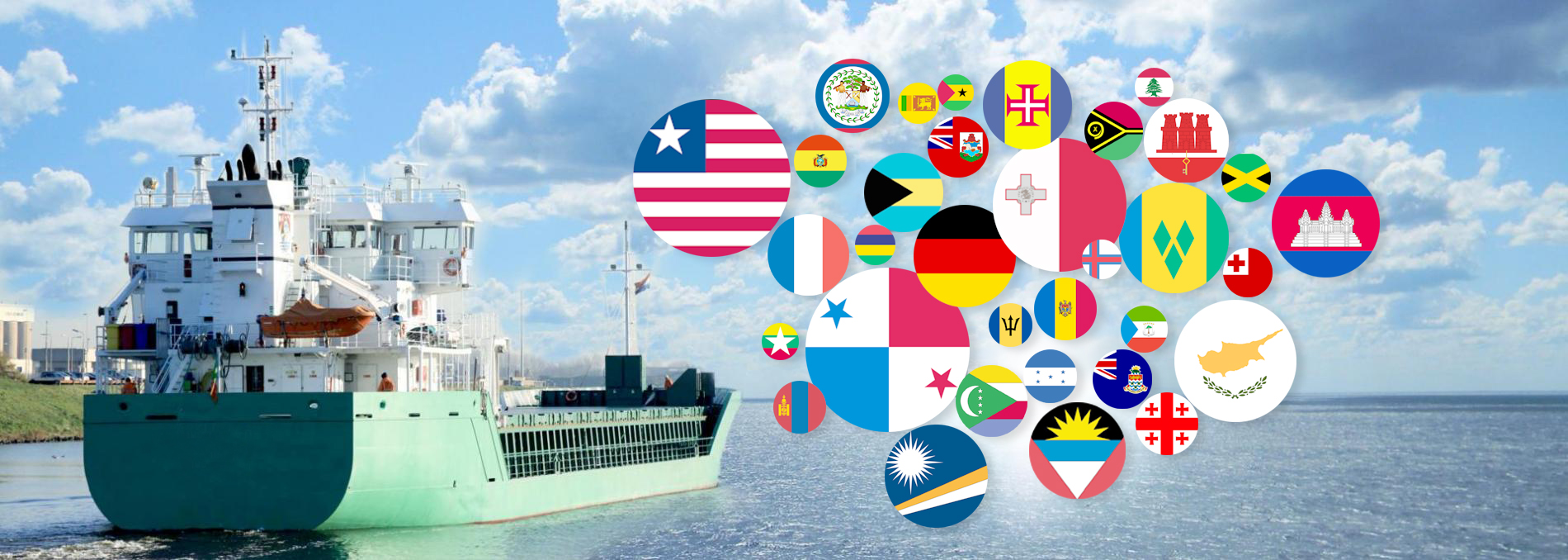Ship registration and Flag of Convenience System

Ship Registration
For ship registration, UNCLOS requires that all vessels must sai l under the flag of a particular state. Thus, shipowners must register their vessels with a Flag State and keep their vessel in a condition t hat satisfies the requirements of that particular Flag State.
UNCLOS Article 91
Nationality of ships
1. Every State shall fix the conditions for the grant of its nationality to ships, for the registration of ships in
its territory, and for the right to fly its flag. Ships have the nationality of the State whose flag they are
entitled to fly. There must exist a genuine link between the State and the ship.
2. Every State shall issue to ships to which it has granted the right to fly its flag documents to that effect.
What factors may play a role in a Shipowner choosing to register their vessel in a particular flag state for their ship registration
1. Restricted cabotage on ship registration
– Cabotage is the transport of goods or passengers between two places in the same country by a transport operator from another country (e.g. a bahamian ship transporting something from Liverpool to Edinburgh). Cabotage rights are the right of a company from one country to trade in another.
Exclusions:
– A small number of countries have what is known as restricted cabotage. The three most significant of these are Brazil, Japan and the USA. If a ship owner wants to carry goods from one port in the USA to another in the USA then they would need a US flag flying from their vessel.
2.Flag administration.
– Ship owners want to choose a flag where the flag administration is helpful, is commercially aware, responds to their needs swiftly, and is competitive in terms of price.
3. Flag reputation
– If the flag a ship owner chooses has a poor reputation they will find that their ships are inspected more frequently than ships that fly under the flag of a state with a better reputation.
4 Cost of operation.
– As above, ship owners will consider the cost of ‘flagging’, the cost of registering, and the cost of getting the necessary certificates can be a big factor. There is often a big disparity in terms of cost between different flag states.
5 Insurance
– Some underwriters will demand that a ship owner chooses a flag from certain states as the insurer can then be assured that the standard of flag meets their own requirements.
6 Naval protection.
– The diplomatic and naval protect ion of the flag state may be important to some ship owners and may be particularly important at times of political crisis.
7 Other factors on ship registration
– Finally many other owner specific requirements like sponsorship to their employees, owners interests, and especially s vessel type. If a flag state has significant experience of registering cruise ships, and the ship owner owns cruise ships, then they may wish to choose that state. Ex: Bahamas which has a very good track record of registering cruise ships.
Flag of convenience?
– Effective jurisdiction, control, and enforcement of Flag State regulations upon vessels is frequently impossible because operations often take place vast distances away from the ship’s country of registration and shielded from the eyes of observers. Open registries have absorbed the M/V SAIGA ruling and evolved into ‘flag of convenience’ states, allowing any owner an opportunity to register their vessel while maintaining little tangible oversight over their vessels.
– This flag of convenience and open registry system exponentially complicates jurisdiction, accountability, and oversight. Shipowners can simply change vessel registration from one open registry to another, which converts the nationality (and therefore Flag State Jurisdiction) of the vessel in order to place it under a jurisdiction with greater or lesser leniency in accountability and oversight depending on t heir wishes. Shipowners trying to avoid stringent compliance with Flag State
requirements will simply register their vessels in a state that is not willing or able to exercise jurisdiction and control, especially in matters often relating to fishing, pollution control, and labour practices.
– For example, a shipowner with a tanker flagged in a country with stringent environmental and security legislation, who desires more flexibility, can simply reflag to a state that is not willing or able to exercise jurisdiction and control, in order to ease regulations aboard his/ her vessel. This is similarly done to dodge taxes, fees, and proper treatment of the crew, as well as to avoid Flag State-imposed pollution control measures.


